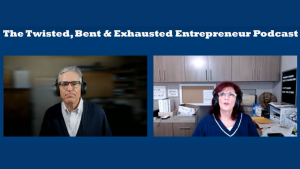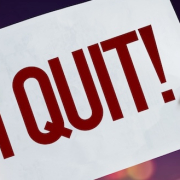The #1 Problem Small Business Owners Face (Remedy Inside)
Are You Doing It All? It’s Time to Stop!
Let’s be real. Being a small business owner often feels like being trapped in a never-ending game of Whack-a-Mole—emails, payroll, client fires, scheduling, marketing, and oh yes, actually delivering your service. This is the #1 Problem Small Business Owners Face (And How to Stop the Madness). You’re answering phones one minute, fixing tech glitches the next, and squeezing in invoicing at 10:45 p.m. with one eye open.
Sound familiar? Then you’re suffering from the biggest problem small business owners face:
Trying to do everything yourself.
 And trust me, you’re not alone. We’ve ALL been there. Most entrepreneurs start as the technician, the doer, the magic-maker. But when you’re running the whole circus? Burnout is inevitable. You’re not building a business—you’re building a hamster wheel.
And trust me, you’re not alone. We’ve ALL been there. Most entrepreneurs start as the technician, the doer, the magic-maker. But when you’re running the whole circus? Burnout is inevitable. You’re not building a business—you’re building a hamster wheel.
But here’s the thing: it doesn’t have to be this way.
Introducing Freedom by Design: How to Build a Business That Runs Itself
This isn’t just a course—it’s your roadmap out of overwhelm. Freedom by Design is our brand-new educational program built for business owners who are tired of being twisted, bent, and exhausted (more on that in a sec).
Inside Freedom by Design, we’ll teach you:
- How to get out of the day-to-day grind
- What systems and structure actually free you—not tie you down
- How to build a business that serves you (not the other way around)
We don’t spill all the secrets in this newsletter (because that’s what the course is for), but here’s what we will say:
You cannot grow without letting go. And Freedom by Design shows you exactly how to do that—strategically, sustainably, and successfully.
![]() Ready to break the cycle? Start by clicking here.
Ready to break the cycle? Start by clicking here.
Wait—You’re Not Alone in This Crazy Journey
Meet our Podcast:
Join me, Leslie Spoor, and co-host Jeff Harrison (aka King of Digital Strategy), as we share real stories, blunt truths, and occasionally wildly inappropriate laughs about the wild ride of entrepreneurship.
This is not your average sugar-coated business podcast. It’s raw, real, and ridiculously relatable.

Tune in for:
- Behind-the-scenes business meltdowns (and how we recovered)
- Lessons from decades of growing, scaling, and surviving
- And practical tips to keep you sane while you build your empire
![]() Listen on Spotify or catch us on our YouTube Channels
Listen on Spotify or catch us on our YouTube Channels
(Search: Twisted, Bent and Exhausted Podcast)
The Bottom Line?
If you’re running on caffeine and duct tape, it’s time to reclaim your business (and your life).
Freedom by Design and Twisted, Bent and Exhausted are here to help you:
- Work smarter
- Lead stronger
- Laugh louder
- And finally, get the tools you need to stop doing it all alone
You built your business. Now let us help you build your freedom.
![]() Start your journey by clicking here.
Start your journey by clicking here.
![]() And don’t forget to subscribe to Twisted, Bent and Exhausted on Spotify or YouTube.
And don’t forget to subscribe to Twisted, Bent and Exhausted on Spotify or YouTube.
Here’s to working less, earning more, and sleeping better. You deserve it.
To your sanity and success.
View this newsletter as a video below:



 Running a business without a plan is a lot like trying to drive cross-country without GPS. You might eventually get there, but you’ll take wrong turns, waste time, burn fuel, and end up a whole lot more stressed than you needed to be.
Running a business without a plan is a lot like trying to drive cross-country without GPS. You might eventually get there, but you’ll take wrong turns, waste time, burn fuel, and end up a whole lot more stressed than you needed to be.


 Management Effectiveness: Assess the effectiveness of the management team or key employees in making decisions, solving problems, and leading the business in the owner’s absence. This can be measured through performance reviews, decision-making success rates, and overall business performance during periods of absence.
Management Effectiveness: Assess the effectiveness of the management team or key employees in making decisions, solving problems, and leading the business in the owner’s absence. This can be measured through performance reviews, decision-making success rates, and overall business performance during periods of absence. The ability for a business to operate successfully without the owner being present is a strong indicator of the business’s maturity, resilience, and sustainability. It demonstrates that the business has solid systems, a capable team, and well-established processes, all of which are key to long-term success.
The ability for a business to operate successfully without the owner being present is a strong indicator of the business’s maturity, resilience, and sustainability. It demonstrates that the business has solid systems, a capable team, and well-established processes, all of which are key to long-term success.